- Level Professional
- المدة 21 ساعات hours
- الطبع بواسطة Indian Institute for Human Settlements
-
Offered by

عن
If we are to make sense of the future of humanity, we must understand the future of the city. For some scholars the 21st century globe will see the most significant change of human history - the move of most of the world to live in cities - a planetary urbanism that has changed the way we live globally, the way we organise ourselves economically and the impact humanity has on our environment in an age that we consequently now describe as the Anthropocene. Most of the urban growth on the planet will be in the global South and this is where we concentrate the attention of this course, drawing on the work of a five-year programme known as PEAK Urban, involving a collaboration of researchers from China, Colombia, India, South Africa and the United Kingdom. The PEAK Urban programme aims to aid decision-making on urban futures by: • Generating new research grounded in the logic of urban complexity; • Fostering the next generation of leaders that draw on different perspectives and backgrounds to address the greatest urban challenges of the 21st century; • Growing the capacity of cities to understand and plan their own future. Shaping Urban Futures aims to demonstrate how complementary research projects have applied the PEAK Urban framework – Prediction, Emergence, Adoption and Knowledge – to uncover interrelated issues of health, climate change, migration and informality in places that will face the biggest challenges from rapid unplanned urbanisation. This course consists of 6 modules, with an Introduction and a Closing module sandwiching 4 core modules. Each module involves around 5-6 hours of learning. To get the best out of the course, learners are encouraged to view all the video lectures and conversations, go through other learning material, work on all the assignments and assessments, and participate in discussions in a constructive and respectful manner. By the end of this course, you will be able to: • Recognise the new urban sciences that are driving our understanding of urbanisation across the world • Examine carefully how we should understand how to trace, examine and explore the ways new social, economic and environmental changes emerge and reshape the working of the city • Visualise how technological change is adopted, adapted and deployed differently in variable city contexts • Understand how best to intervene in urban futures through sharing urban experiences and contributing to the coproduction of knowledge to enrich and strengthen knowledge exchange in cities This course is designed principally for people working in cities who want to make a difference and for all urban scholars, from early career researchers to veteran urbanists and everyone in between. This course will also hopefully inspire workers in local government, community organisations and the private sector as well as urban scholars to build upon the experiences of a global network to develop their own methods and frames to view, interpret and define urban changes in their local geographies and contexts.الوحدات
Welcome to Shaping Urban Futures
2
Readings
- Welcome to Shaping Urban Futures
- Meet your Instructors
Introduction
1
Discussions
- Introductions
2
Videos
- Why Do Cities Matter?
- Course Structure
Additional Viewing
1
Videos
- Cities of the 21st Century
Module Introduction
1
Videos
- New Ways of Knowing the City
Using High-Resolution Mobility Modelling
2
Videos
- Understanding COVID-19 and other disaster scenarios through mobility data
- Transport planning
2
Readings
- Commute and Mobility Patterns Evidenced from Telecommunications Data can Inform Reopening Strategies after Covid-19 Lockdowns
- Understanding public transit travel choice in the post COVID-19 era: Policy implications
Using Satellite Imagery and Data
2
Videos
- Downscaling census data using satellite imagery
- Using satellite imagery and machine learning to predict urban growth
2
Readings
- Towards more equitable and sustainable urban water systems in India: The role of granular data
- Towards a More Sustainable Urban Growth Through a Data-Driven Framework for Modelling, Planning, and Control
Using Big Data to Study Green Spaces and the Built Environment
2
Videos
- Using smart phone big data to examine spatial-temporal patterns of urban park visitation
- Using big data to study the impact of green space and the built environment on health
2
Readings
- Cities of Tomorrow: Digitization and Paradigms of Our Urban Future
- Green space and the built environment: Optimising health benefits in rapidly emerging cities of the global South
Discussion
2
Discussions
- Predictive capacity of urban data science
- Qualitative methods of prediction
Module Summary
1
Assignment
- Module 1 Graded Quiz
1
Videos
- Module Summary
Module Introduction
1
Videos
- Recognising the Emergent City
New Frames
1
Videos
- Climate change, plastics and drains in Delhi
1
Readings
- What Delhi's Drains and Plastics Teach Us About Informality and Resilience in Today's Cities
New Mobilities
2
Videos
- "Invisibilised Territories": Emerging Urbanisms in Geographies of Displacement
- Emergent Mobilities in an Age of COVID
2
Readings
- Gentrification in geographies of conflict
- Changes in population movement make COVID-19 spread differently from SARS
New Archives
2
Videos
- Social Solidarities, Sexualities and Health in the Urban South
- Using Land to Finance Urban Development in the Global South
Discussion
3
Discussions
- The Emergent City
- Identifying New Formations
- Emergence
Module Summary
1
Assignment
- Module 2 Graded Quiz
1
Videos
- Module Summary
Module Introduction: Exploring Socio-Technical Systems
1
Videos
- Exploring Socio-Technical Systems
Digital Disruption
3
Videos
- Fintech Remittances
- Blockchain Cadastration
- Platform Mobilities
2
Readings
- Remittance micro-worlds and migrant infrastructure
- Digital payment systems and financial inclusion for auto-rickshaw transport operator-drivers in India
Everyday Technologies
2
Videos
- African Kitchens and New Migrant Places in New Delhi
- Domestic Energy
2
Readings
- Locked Down and Locked In: COVID-19 and African Migrants in India
- Why India’s urban poor struggle to transition to clean cooking despite grave health impacts
Discussion
3
Discussions
- Unintended Inequalities
- Disruptive Urban Innovations
- Technology in the Urban
Module Summary
1
Assignment
- Module 3 Graded Quiz
1
Videos
- Module Summary
Module Introduction
1
Videos
- Grounding Knowledge
Knowledge Exchange
2
Videos
- Questions of Knowledge and Practice in the City
- Practice
1
Readings
- Required Viewing: Urban ARC 2022 | Panel 9: Research, Funding, and Partnerships
From Informality to Formality
2
Videos
- Co-production in Gendered Cities
- Rethinking Urban Health Data
2
Readings
- Im/Mobilities of Care During the Covid-19 Lockdown in Itagui, Colombia
- The barriers and enablers to collaboration between health and urban government sectors for healthy cities
From Global to Local
1
Videos
- Knowledge Transfer and Co-production for Achieving the SDGs in Cities
1
Readings
- Localizing the Sustainable Development Goals Through the Lens of Urban Resilience
From Research to Practice
1
Discussions
- Urbanisation's role in the climate crisis is being overlooked
1
Videos
- Shaping Cities with Evidence: The Important Role of Policymakers, Practitioners and Civil Society
1
Readings
- Influencing policy
Discussion
2
Discussions
- Producing Urban Knowledge
- Producing and Sharing Knowledge in the Informal City
Module Summary
1
Assignment
- Module 4 Graded Quiz
1
Videos
- Module Summary
Wrapping Up
3
Videos
- Closing Reflections
- Bringing It All Together: A Conversation
- Recapping Course Learning Outcomes
Post-Course Survey
Auto Summary
"Shaping Urban Futures" is a dynamic course in Personal Development focused on understanding the future of cities, especially in the global South. Led by Coursera, this course leverages the PEAK Urban framework to address urban challenges through research on health, climate change, migration, and informality. Comprising 6 modules, it offers 30-36 hours of comprehensive learning, including video lectures, assignments, and discussions. Ideal for city workers, urban scholars, and local government professionals, it aims to foster leaders capable of navigating urban complexity and planning sustainable futures. Subscription options include Starter and Professional plans.

Michael Keith
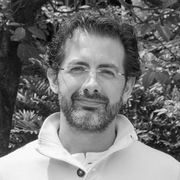
Juan C. Duque

Pengjun Zhao
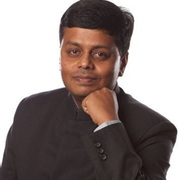
Aromar Revi
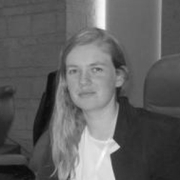
Neave O'Clery

Susan Parnell
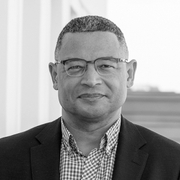
Edgar Pieterse
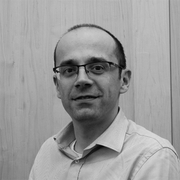
Tim Schwanen
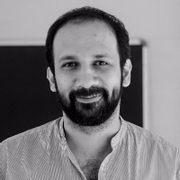
Gautam Bhan


